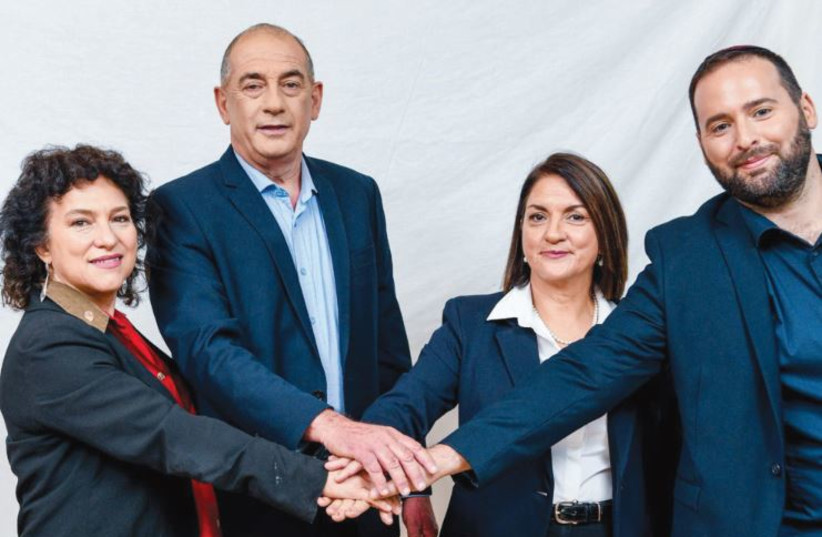Although the municipal election campaigns have generally been low key thus far, a deeper look reveals the political jockeying behind the scenes.
Naturally, attention has centered around the race for mayor. The tenant of the sixth-floor office at Safra Square for the last five years did what most voters did not expect: He delivered the goods. Mayor Moshe Lion promised to clean and build – and the city is indeed clean, and the construction boom is dizzying, though it is not making everyone happy.
Lion almost managed to make most Jerusalemites forget that he only took up residence in the capital 10 years ago. Until two weeks ago, he was the only candidate for mayor. But this was a cause for concern for the mayor, who worried that it might lead to reduced voter turnout. Although it wouldn’t block his way back to the mayor’s office, it would curb his political power.
The only possible mayoral candidate on the horizon was Yossi Havilio. He had this dream in the 2018 elections but dropped his bid for mayor at the last minute. But this week, Havilio announced that he not only managed to gather a large and diverse list for the city council– with him at its head – but is also running for mayor.
Did Lion’s hope of not running alone come true, or is there something more at work?
It’s no secret that Lion, who excelled in sleight-of-hand exercises between his ultra-Orthodox partners and his cohorts, Laura Wharton and Havilio – who are also members of his coalition – hoped for “help” from the outside in order to avoid facing the same situation this time as well.

It is difficult to determine whether there were behind-the-curtain negotiations or if everything was done without coordination. But it is clear that the candidacy of Havilio, whose chances of being elected mayor are slim, serves Lion’s agenda.
On November 1, the morning after the elections, will Havilio show up with a list of demands? Will Lion “free himself” from the grip of the haredi factions and fulfill, without being encumbered, his original plan – to serve the diverse needs of the city’s population?
There is only one way to ensure that the rights of the capital’s haredi residents are preserved without trampling on the needs and desires of its pluralist residents: a diverse city council that will faithfully represent the various sectors of Jerusalem’s population.
However, this result can only be achieved if everyone votes. The ultra-Orthodox population in Jerusalem comprises about a third of the city. Today they hold 17 seats (three ultra-Orthodox factions and one nationalist ultra-Orthodox faction). This is a constellation that both Lion and his cohorts want to redress.
As for the city’s 370,000 Arab residents, the chances of east Jerusalem party candidate Walid Abu Tayeh’s winning the mayoralty are rather unlikely. In order to even get a seat or two on the city council, he has to convince about 5% of those who bother to vote to cast their ballots for his list.
It will take another 46 days to find out what Jerusalemites really want.
